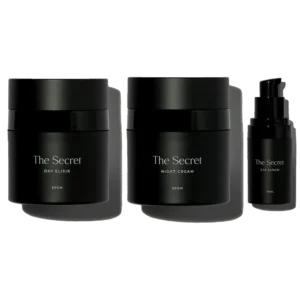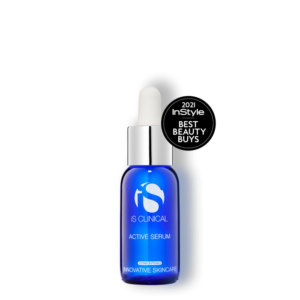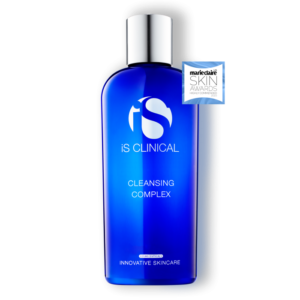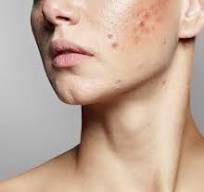Understanding Acne: Causes, Treatments, and Mental Health Impacts
Hello beauty lovers,
As a business owner and skin therapist, I see many of you struggling with acne. It’s a condition that affects not just your skin but your confidence and overall well-being.
Today, I want to take a moment to explain what acne is, why it happens, and how we can work together to manage it effectively. Let’s also explore the profound effects acne can have on your mental health, and why it’s important to address these issues holistically.
What Causes Acne?
One of the most common skin conditions experienced – of course, there are a lucky few who manage to get away unscathed, but we can say with confidence most people have had a breakout at least once in their lifetime. The frustrating red bumps show on the skin due to a blockage in the pores, usually as a result of excess oil production, dead skin cells, bacteria or inflammation.
Acne is a common skin condition that occurs when hair follicles become clogged with oil, dead skin cells, and bacteria. But what triggers this process? Let’s break it down:
1. Hormonal Changes: Hormones play a significant role in acne development. During puberty, menstrual cycles, pregnancy, and conditions like polycystic ovary syndrome (PCOS), hormonal fluctuations can cause sebaceous glands to produce more oil, leading to clogged pores.
2. Excess Sebum Production: Sebaceous glands in your skin produce oil (sebum) to keep it lubricated. However, when these glands produce too much oil, it can combine with dead skin cells to block hair follicles.
3. Bacterial Growth: The bacterium Propionibacterium acnes (P. acnes) thrives in oily environments and can multiply in clogged pores, leading to inflammation and acne.
4. Dead Skin Cells: Normally, dead skin cells rise to the surface of the pore and are shed by the body. But when your body produces too many dead skin cells, they can mix with sebum and clog the pores.
5. Genetics: Your genes can influence the likelihood of developing acne. If your parents had acne, chances are you might experience it too.
6. Diet and Lifestyle: While diet alone isn’t a primary cause of acne, high-glycemic foods (essentially foods that digest quickly and release glucose into the bloodstream turning into sugar), dairy products, stress, and certain medications can exacerbate the condition.
Understanding where acne appears on your face can give us clues about its causes:
Forehead: Often linked to digestive issues, stress, and poor sleep.
T-Zone (Forehead, Nose, Chin): High in sebaceous glands, prone to oil production and clogged pores.
Cheeks: Can be caused by dirty pillowcases, mobile phones, and makeup brushes, or respiratory issues.
Jawline and Chin: Frequently related to hormonal imbalances.
Temples and Hairline: Often due to hair products or headgear.
Effective Acne Treatments
Acne treatment requires a comprehensive approach tailored to your specific skin type and concerns. Here are some of the most effective treatments we can consider:
1. Professional Treatments:
– Chemical Peels: Exfoliate the skin and reduce scars.
– Microdermabrasion: Removes the outer layer of dead skin cells.
– Laser and Light (LED) Therapy: Targets bacteria and reduces inflammation.
– Microneedling: Stimulates collagen production and improves texture.
– Extractions: Professional removal of blackheads and whiteheads.
2. Skincare:
– Cleansing: Use gentle, non-comedogenic cleansers.
– Moisturizing: Hydrate the skin with non-comedogenic moisturizers.
– Sun Protection: Use broad-spectrum sunscreen to prevent scarring.
At Vanity, we have searched high and low to partner with the most highest of quality products and brands that we know and guarantee deliver the best skin results for your needs. Here are some of our top picks to help with Acne-

The Secret Skincare ACNE prescription range


iS Clinical Cleansing Complex & Active Serum
3. Lifestyle and Dietary Modifications:
– Diet: Reduce high-glycemic foods and dairy.
– Stress Management: Engage in stress-reducing activities.
– Hygiene: Keep pillowcases clean and avoid touching your face.
Of course, there are also other treatment options that MAY be necessary if the problem does not persist after the treatments above. These treatments are not recommended as a first priority treatment and we recommend leaving them to the last resort.
4. Topical Treatments:
– Retinoids: Help unclog pores and reduce inflammation.
– Benzoyl Peroxide: Kills acne-causing bacteria and reduces oil production.
– Salicylic Acid: Exfoliates the skin and unclogs pores.
– Antibiotics: Reduce bacteria and inflammation.
5. Oral Medications:
– Antibiotics: For moderate to severe acne.
– Hormonal Treatments: Birth control pills and anti-androgens regulate hormones.
– Isotretinoin: A potent retinoid for severe, unresponsive acne.
The Mental Health Impact of Acne
Acne doesn’t just affect your skin; it can have a significant impact on your mental health. It’s not uncommon for individuals with acne to experience:
Low Self-Esteem & Low Self Image
Acne can affect how people see themselves and how you think others perceive you. It can inhibit your ability to self love and maintain a positive self concept. The idea that someone does not ‘look the part’ or ‘look beautiful’ can really provoke inner depression and negative self talk.
Social Anxiety
Many people feel self-conscious about their appearance and may avoid social situations. This can lead to isolation and loneliness and often prevent people from enjoying life and company.
Depression
Persistent acne can lead to feelings of hopelessness and depression. This can then lead to pharmaceutical medications like anti depressants which only mask the underlying issue and dont offer solutions. Depression is a very big problem and touches the lives of so many individuals resulting in terrible situations and circumstances.
Stress
The stress of dealing with acne and its treatment can be overwhelming. Stress then also plays a vital role in the ongoing and persistance of acne and other skin and health concerns; exacerbating the acne problem and heightening all of the above.
Addressing the mental health aspects of acne is crucial. Remember, it’s okay to seek support from mental health professionals or support groups. Talking about your experiences and feelings can be incredibly therapeutic.
As your skin therapist, I’m here to support you on your journey to clearer, healthier skin. Acne can be challenging, but with the right treatment plan and a holistic approach that considers both your physical and mental well-being, we can make significant strides. Remember, you’re not alone, and every step we take together brings us closer to achieving your skincare goals. If you have any questions or need personalised advice, please don’t hesitate to reach out. Your skin health and happiness are our top priorities.
With love always,
Daniela & theVanity House team
x



